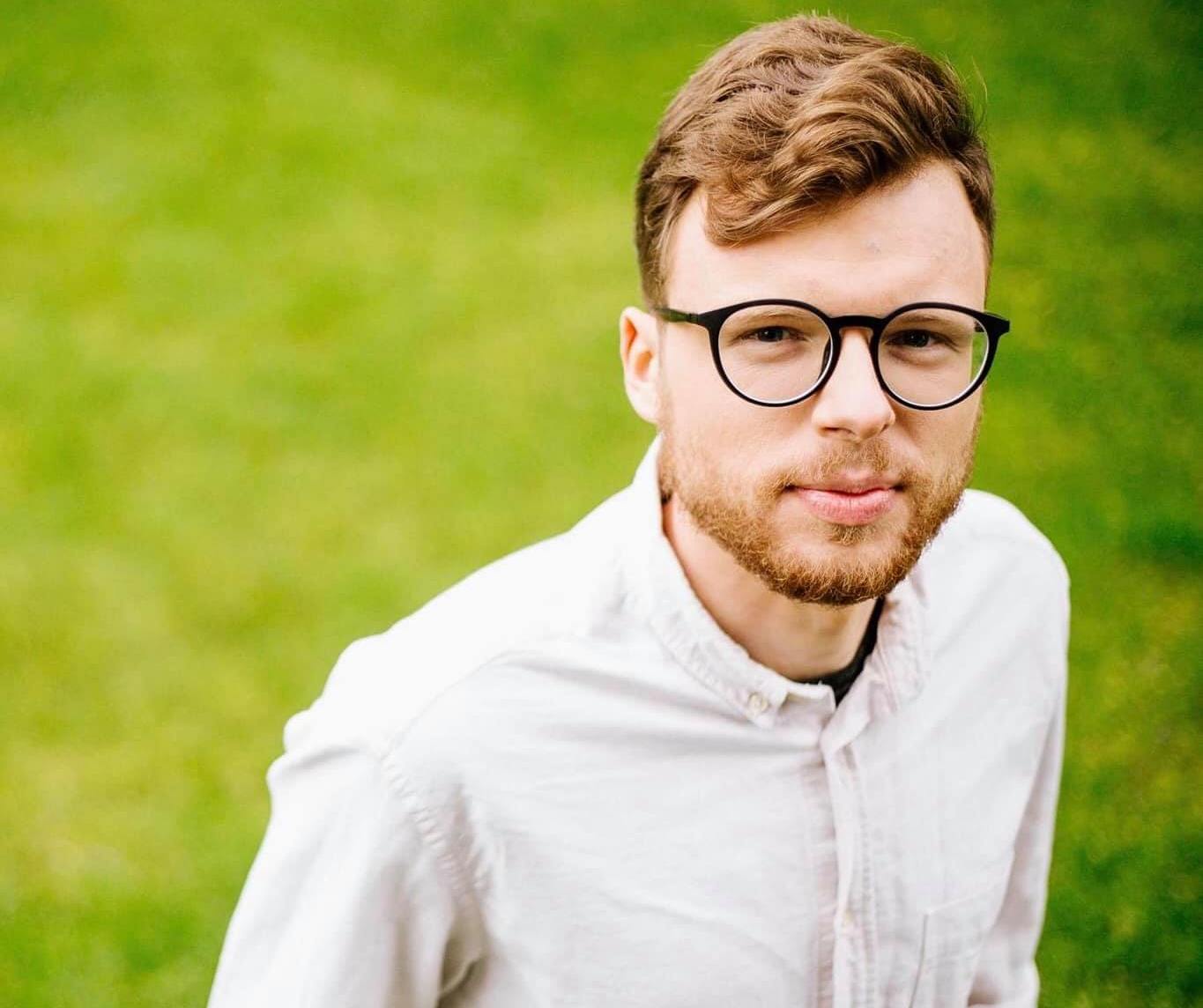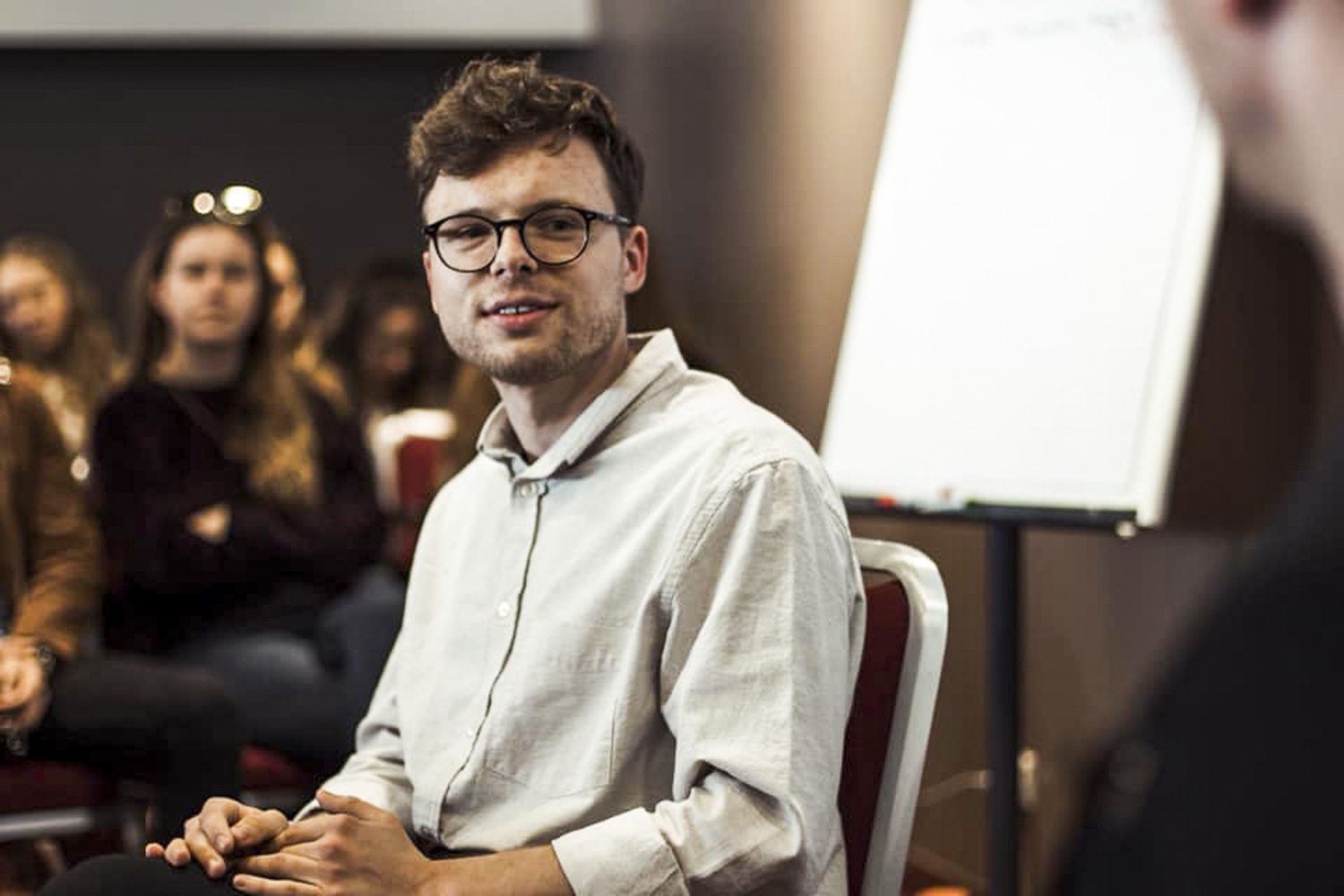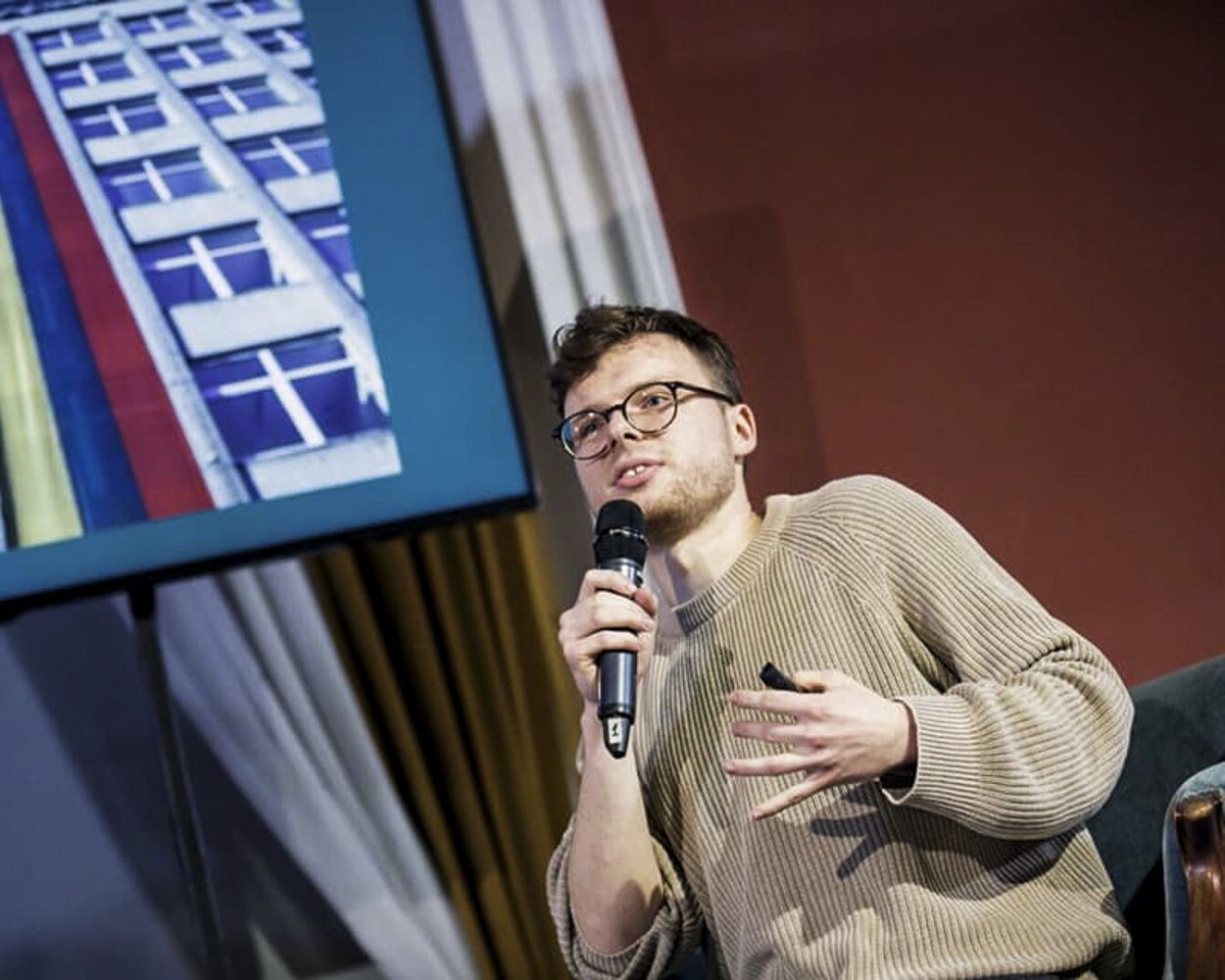 Ignas Klėjus. Photo: Ignas Klėjus personal archive
Ignas Klėjus. Photo: Ignas Klėjus personal archive
“I am happy to have such two complementary activities in my life. In the morning, I am a resident doctor and treat people and when I work at the radio I educate people. It is the greatest happiness and pleasure”, Ignas Klėjus, a resident doctor in the GP programme of Vilnius University, said. Ignas works at the Centre for Coordination of Rare Diseases at VU Hospital Santaros Klinikos and at the Lithuanian National Radio. During the interview, he told us about his desire to study medicine, his creative aspirations and his love for his homeland.
If anyone asked you when you were a child what you wanted to be, would you have answered – a doctor?
I remember perfectly well when the teacher asked us, in grade one, to write down what we would like to do when we grew up. I wrote I wanted to study at the Academy of Arts! I don’t know why I wrote it at that time. You really have no idea of what kind of a future you want when you are in grade one. Perhaps because I liked drawing and all my life at school was related to art.
The change of heart occurred when I started studying in secondary school and realized that I really did well in sciences and was interested in human health. There was however no clear turning point in my life when I decided to opt for medical studies. I did not get into the medical study programme at first. So, I studied public health sciences for a year and tried again for the medical study programme and the second attempt was successful.
And now you have successfully completed your studies and are in the GP residency programme.
I was thinking hard about what I should do after graduation. The question of what to do in life starts creeping in at school. It seems that you have already discovered yourself – you studied medicine, but 6 years later you have to choose again, this time – your specialization.
I really thought a lot and tried everything that was possible, but it was very difficult to decide. Finally, because of my desire to be close to people, I chose GP specialization. A GP has the first contact with a patient. It seems to me that that 50 percent of success in treatment depends on a GP, even if the disease is cardiological, oncological, etc. I am inspired by the fact that a GP is inseparable from solving each person’s health problems.
 Ignas Klėjus. Photo: Ignas Klėjus personal archive
Ignas Klėjus. Photo: Ignas Klėjus personal archive
Was the decision to improve your knowledge and work in this area impulsive, led by emotions or, on the contrary, rational and measured?
After graduating from medical studies, I took a gap year to understand what I really wanted. It seemed to me that I was under great social pressure and pressure from my thoughts. There may not actually be social pressure as such, but when all your university friends choose residency studies, they do know what they want to do, whereas I really didn’t know.
So, I decided to take a year to make a decision. I started working as a medical doctor and 3 months later I knew that the GP specialization was the area where I saw myself in the future. I was impatient to start the programme! In my application I specified only GP residency studies, because I was absolutely sure that was what I wanted to do and I don’t regret it.
You mentioned that at school you were involved in art and creative activities. Did you start working for the radio at that time too?
My school was quite exceptional. We had our own radio station with 800 regular listeners. Radio shows and music were broadcast in the school corridors, so the listeners really did not have choice. So my creative activity and fascination with the radio as a means of transmitting information and an opportunity to create a content of lasting value began at school.
During my studies I worked for a couple of commercial radio stations, and after entering the residency programme, I started working for the Lithuanian National Radio. Currently I host programmes on the radio and one of them, called “Syndrome”, is about the history of medicine and syndromes, their impact on health and the latest medical treatment solutions.
Is your work for radio a hobby or a “counterbalance” for the medical profession?
I am happy to have two complementary activities in my life. In the morning, I am a resident doctor and treat people and when I work at the radio I educate people. It is the greatest happiness and pleasure.
I would like my radio job to be part of my life as long as my main profession allows it. As I have already mentioned, the GP profession appealed to me because you are close to the patient. I think the same can be said about the radio – it is always close to people. I hope my programmes reach that goal.
 Ignas Klėjus. Photo: Ignas Klėjus personal archive
Ignas Klėjus. Photo: Ignas Klėjus personal archive
Since we are speaking at the time of the celebration of the Day of Restoration of the State of Lithuania and I know that the nationality and Lithuanian identify have a special meaning to you, I would like to ask you who has contributed most to nurturing love of your homeland in you?
It was nurtured by a patriotic, civic environment and citizenship taught in school. Now a great deal of attention is paid to nurturing and promoting this in schools. Enormous changes have taken place over the past decade and these have largely been the result of our own efforts. I believe that the environment in which we have lived over the past few years reveals dedication to citizenship and commitment to the state not as a territorial unit, but as a society.
You mentioned that more attention is paid today to nurturing citizenship in schools. However, today, students probably would prefer to call themselves citizens of the world rather than of Lithuania.
There is some truth in this, maybe there are more such people today than 10 years ago. The reason for this could be opportunities for international travel, seeing the world. The digital space has also become more developed and global. For example, a decade ago, social networks were just starting off and today young people can make full use of global social networks. The opportunities are huge. But I think even if you identify yourself as a citizen of the world, you are also a citizen of Lithuania – these are inseparable.
Are you happy to see Lithuania as it is now? Do you see yourself in Lithuania in the future?
For the last few weeks and even months, the media have been writing that Lithuania is living its best period ever just now. It seems that we are at the peak, so when it comes to my future, I think only about Lithuania.
I can’t say that I am not interested in foreign countries. However, it can’t be excluded that after completing my residency I will move to a small town where I may not have been before and will work there for several years trying to get to know a part of Lithuania that I don’t know.
There are many opportunities in Lithuania, and it seems that we are discovering them. Many young people discover small towns, admire the opportunity to try out a slower pace of life and become familiar with somewhere they haven’t been before.
